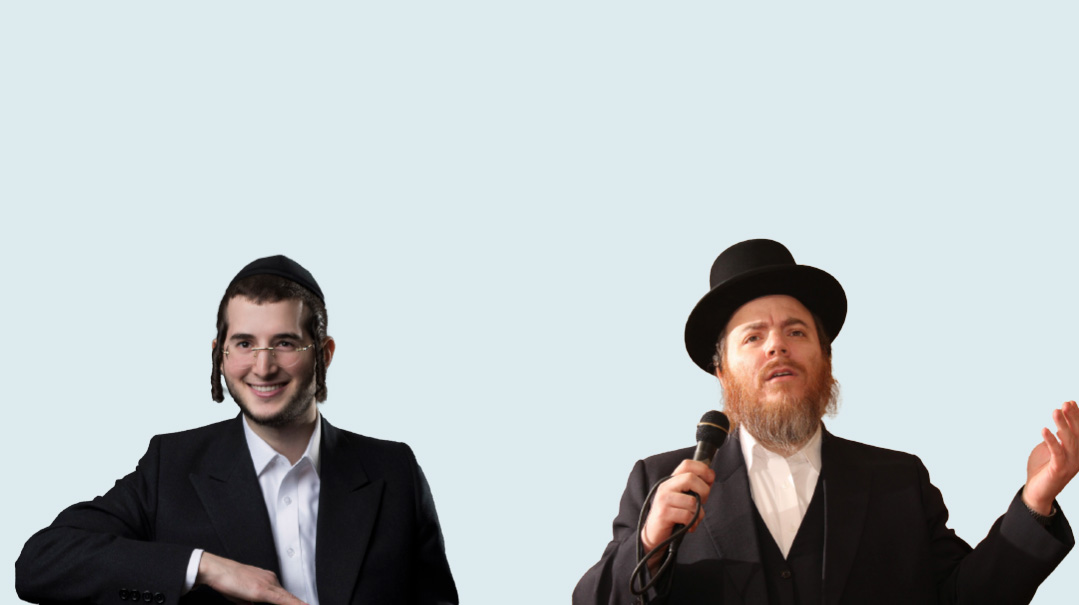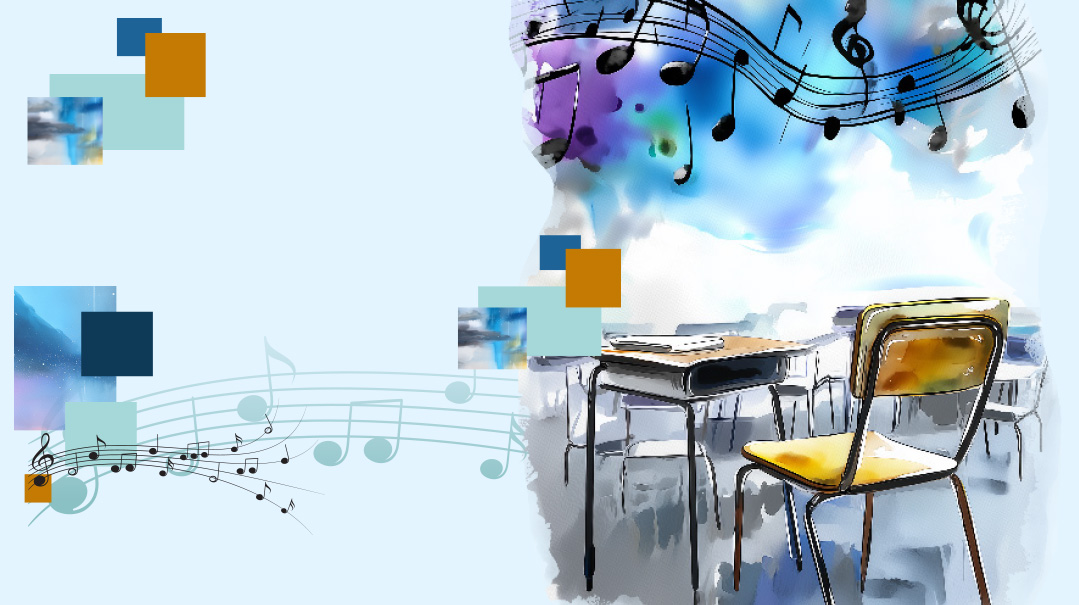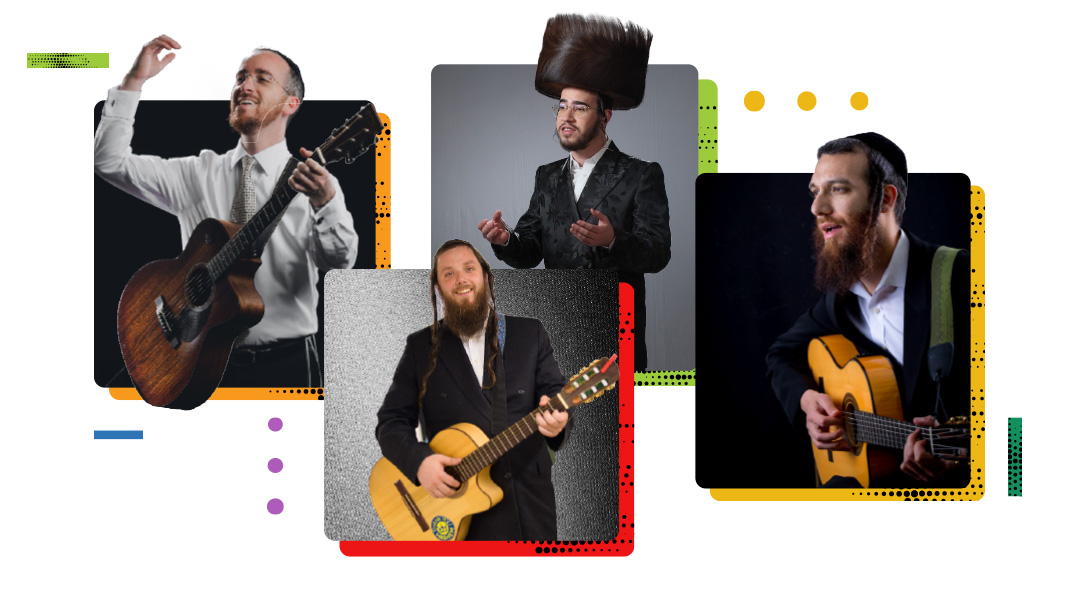Mood Mix Danny Flam
| May 21, 2024Going back at least 35 years, avid Jewish music fans have seen the name

On hundreds of album covers. What do Benny Friedman, Yaakov Shwekey, MBD, Avraham Fried, Lipa Schmeltzer, Beri Weber, Shmueli Ungar, Ishay Ribo, Mordechai Shapiro, and Shlomo Carlebach all have in common? They’ve all sung with Danny’s incredible brass talent behind them. This versatile Israeli-born musician has reached for the stars across several genres, and has had a wide impact on Jewish music trends in the process.
THE START OF MY BRASS JOURNEY
I was in fourth grade when a brass quintet came to my school. The trombone looked like the most fun instrument to play, and I immediately wanted one. I started learning brass the next year. Before that, I’d been taking recorder and piano lessons. As a teenager I joined a youth orchestra, I played in the Air Force orchestras during my IDF service, and then as a reservist in the Rabbinate Choir with Mona Rosenblum. After the army, I joined the Israel Philharmonic Orchestra.
Just recently, my father, who is 88 now, looked at me and said, “They pay you for this?” After all these years, he’s still wondering how I’m making a living playing my trombone. I actually have a degree in computer science, and I have done some work in it, but music is my calling. I’m on the trumpet more than the trombone nowadays, but I’m pretty happy playing either, because I feel that this is what I’m here in this world to do.
MY MOST MEANINGFUL FEEDBACK
There was a special night about 20 years ago when I played with MBD at a concert conducted by Moshe Laufer in the Central Hotel in Jerusalem. I still remember the electricity of that night. The crowd had incredible energy and warmth, and at the end of the evening, a non-Jew came over to me and said, “I’m part of a visiting Christian delegation, and I have never felt anything so magical. It’s like G-d is in the room!”
HOW I KEEP UP MY SKILLS
I have to constantly move forward, otherwise people will be saying, “Oh, him again!” I try to do something new every day. I frequently buy a new microphone or a new instrument, play a new tune, or test a new way of playing, because for me, music has to be new and fresh.
A few months ago, a chassidishe guy — a retired amateur player — came over to me and offered to tell me something that would change the way I play. He told me something about the way I hold my lips when playing the trumpet. I listened to him, and that turned out to be one of the best pieces of advice I ever received. So I’ll try anything new.
It says in Pirkei Avos, “Asei lecha rav uknei lecha chaver — you have to have a teacher and acquire a friend.” In music, having a friend on your level and having someone who can tell you that you need to play better are both essential. I work and play music with world-class musicians, and this keeps my skills up. In Jewish music, I’ve had great relationships with Moshe Laufer and Mona Rosenblum for many years, and also with today’s amazing young talent, including producers Naftali Schnitzler, Avrumi Berko, Yitzy Berry, Doni Gross, and others. That helps.
HOW THINGS HAVE CHANGED OVER MY CAREER
When I started out, most Jewish music was klezmer-influenced. I don’t play klezmer, I play the “new Jewish music” — the sound that was first promoted by Yisroel Lamm, Mona Rosenblum, and Moshe Laufer. There are always a handful of individuals moving the Jewish music scene forward. Now it’s the young producers, people like Doni Gross, Benny Laufer, Mendy Portnoy, Yoeli Dykman, Yitzy Berri, and others.
But although the arrangers and composers are at the front and on the album covers, the musicians also have an impact. The brass arrangements are not always written out for me in great detail. Yisroel Lamm is pretty thorough and exact, and Moshe Laufer too, but some of the other arrangers will go to Minchah and leave us to finish ourselves. So I know that in many cases, my own input shapes the brass section.
WHY BRASS INSTRUMENTS ARE SIGNIFICANT
It’s actually a mitzvah in the Torah to play the trumpet on happy occasions — “uveyom simchaschem uvemoadeichem, usekatem bachatzosros…” so brass is a real thing. Occasionally I’ve come across people who specifically want to have a trumpet at a wedding, because the Torah connects it to joy.
From ancient Egypt, archaeologists found something that looked like today’s trumpet. In the Beis Hamikdash, we know the Leviim played percussion, flutes, harps, bass, and brass instruments, so the sections of the orchestra really haven’t changed much since that time. On a basic level, all brass instruments — trombone, trumpet, tuba, French horn — are basically shofars, but each one has its own voice. The way I record music layers a lot of these voices, like a choir singing, layering the tones to get a certain sound. On an average track, there are eight to ten layers of brass. The musician sings into his instrument when he plays, so if I play all the tracks myself, the sound is tighter, and if I bring in others, you get more sound and vibe.
MY PREFERENCE GIVEN STUDIO OR STAGE
Each has its perks. In the studio, you get to concentrate on the creative process and come up with something really polished. On the other hand, at a live show, people give you feedback, so that’s another kind of satisfaction. Another thing about the stage is that people hear with their eyes. The musicians are bringing the musical experience, so they have to have that same energy. If it’s a Ishay Ribo concert, I’m in a serious mode. If it’s Benny Friedman or Mordy Shapiro, the vibe is super happy, so we have to be part of that too.
WHAT I LOVE LISTENING TO
Classical music. I often listen to the New York Philharmonic. In Israel, I used to play for the Philharmonic, but now I just enjoy going to listen. Playing music is more fun in the Jewish world than in the classical world — and the food is better too.
(Originally featured in Mishpacha, Issue 1012)
Oops! We could not locate your form.







